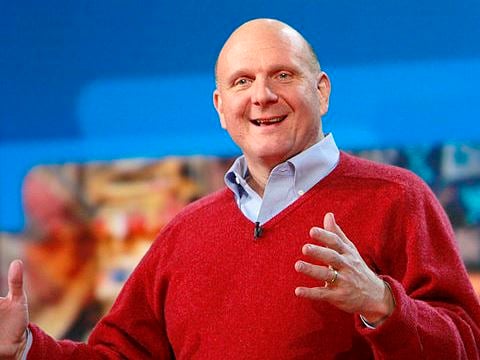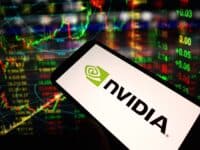The management changes engineered by Microsoft Corp. (NASDAQ: MSFT) CEO Steve Ballmer are the largest since he became CEO more than 13 years ago. The Windows PC OS business took a back seat for the first time in the company’s history. Some of the changes were hard to understand. Windows Phone was thrown together with the Xbox operating system, for instance. But the goal of the entire exercise was to break down the fiefdoms that were viewed by Ballmer as hurdles to innovation and execution. However, the entire matter does not address the question of whether Ballmer is one of the great CEOs of the current technology age? If not, the changes in structure at Microsoft mean nothing. Source: Microsoft Sweden, via Wikimedia Commons
Source: Microsoft Sweden, via Wikimedia Commons
Ballmer often has been measured against his former boss, Bill Gates, and Apple Inc. (NASDAQ: AAPL) chief executive and innovator Steve Jobs — the greatest innovators of their generation, or perhaps an even longer period than that. In the strata below these two are executives, in terms of regard, are Larry Ellison of Oracle Corp. (NASDAQ: ORCL), Andrew Grove of Intel Corp. (NASDAQ: INTC) and Larry Page and Eric Schmidt of Google Inc. (NASDAQ: GOOG). Schmidt is almost exactly Ballmer’s age. The comparison with Schmidt may be the most apt. He was more a gifted executive than an inventor. Schmidt steered Google from obscurity to a position of one of the premier technology firms in the world.
Ballmer’s record works against optimism about his ability to make Microsoft “great again.” His tenure, which began in January 2000, has been characterized as one long period of decline. A number of his strategic moves have been used in negative evaluations. First among these are the failure of Windows on portable devices and the disastrous effort to make Bing a viable competitor of Google.
There have been hints of brilliant decisions on Ballmer’s part too. The invention of Xbox and Ballmer’s dogged effort to get it to the first tier of technology hardware have worked. Xbox has given Microsoft a place in America’s living room, and it has become an alternate to PCs, at least as an entertainment device. Forward-looking changes at the Microsoft Server and Office divisions have kept those operations growing quickly and have maintained Microsoft at the center of the enterprise IT industry. On balance, though, the effects of these advances have not been enough to burnish Ballmer’s image.
Ballmer also has had a mixed track record in M&A, although his decision to buy Skype and use it a platform to develop a larger roster of customers for Microsoft has been mostly admired.
Over the past year, and certainly during the next, Ballmer’s reputation will be cemented. Wall St. will be impatient to see whether the reorganization bears fruit. It is not likely to, at least not enough. The hole into which Microsoft has fallen since 2000 has been too deep, so rearranging where people work in the Microsoft structure, and what they are asked to do as they cooperate among themselves, will fall short. There are no sea change products, like Google search and Android or Apple’s iPhone and iPad, about to come out of Redmond. That has been proven time and again.
Take This Retirement Quiz To Get Matched With An Advisor Now (Sponsored)
Are you ready for retirement? Planning for retirement can be overwhelming, that’s why it could be a good idea to speak to a fiduciary financial advisor about your goals today.
Start by taking this retirement quiz right here from SmartAsset that will match you with up to 3 financial advisors that serve your area and beyond in 5 minutes. Smart Asset is now matching over 50,000 people a month.
Click here now to get started.
Thank you for reading! Have some feedback for us?
Contact the 24/7 Wall St. editorial team.



